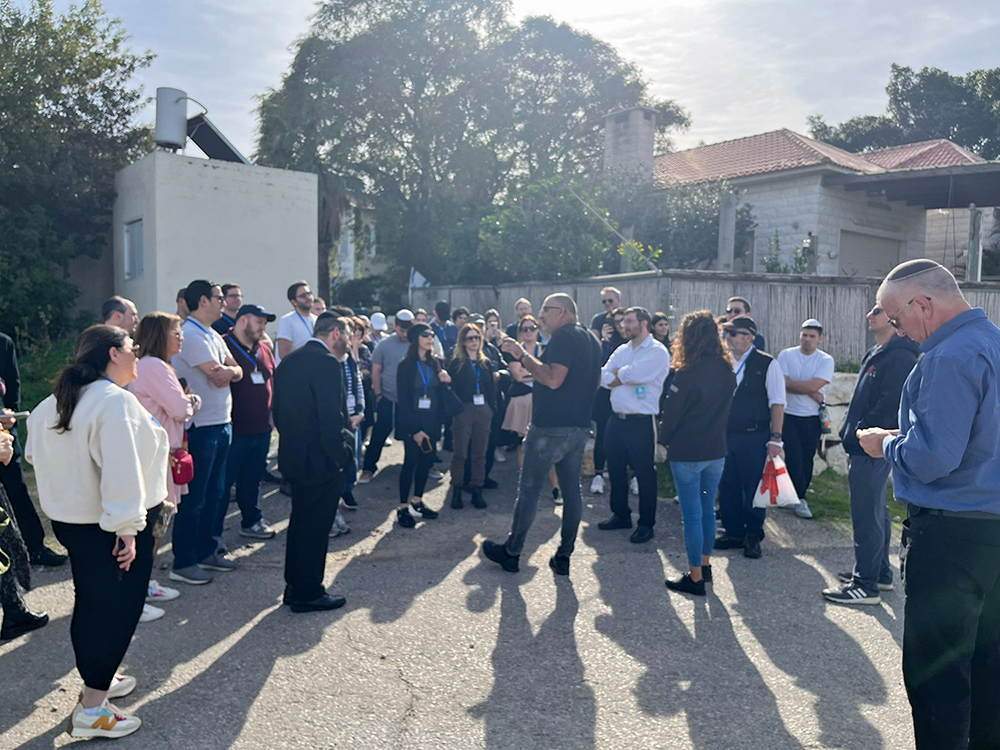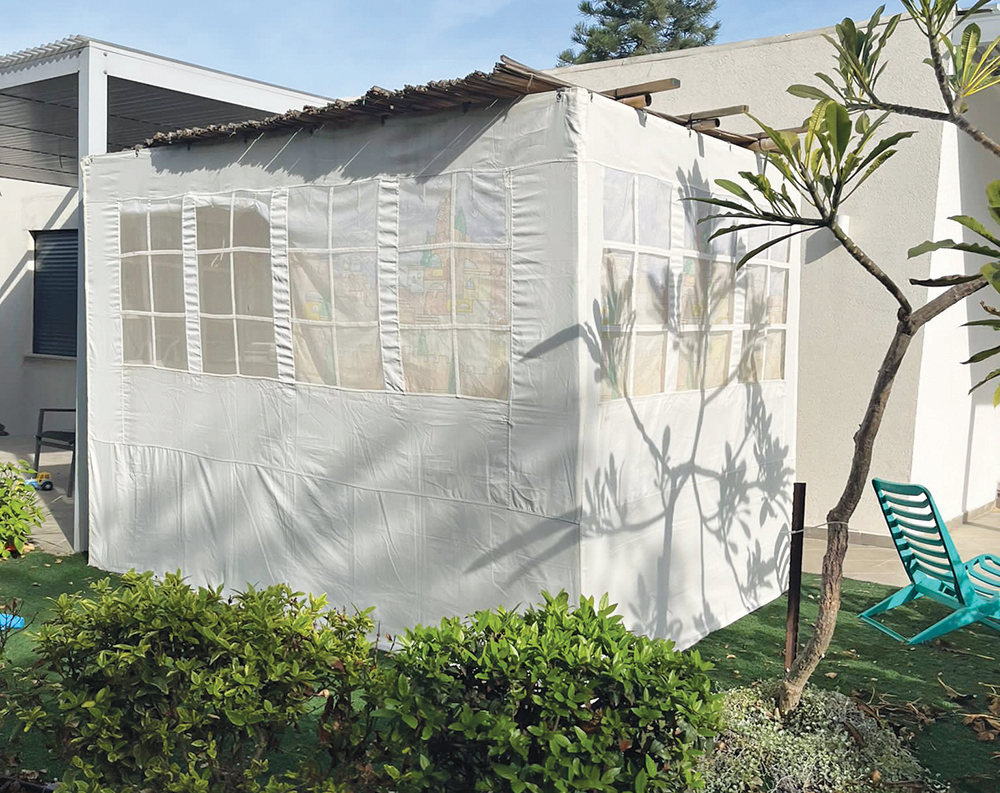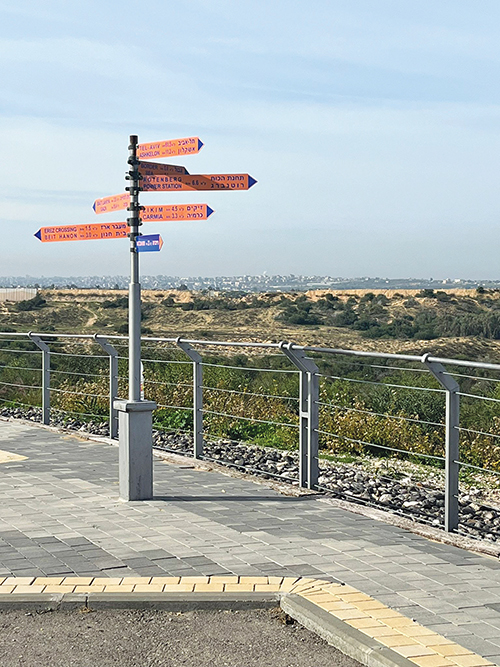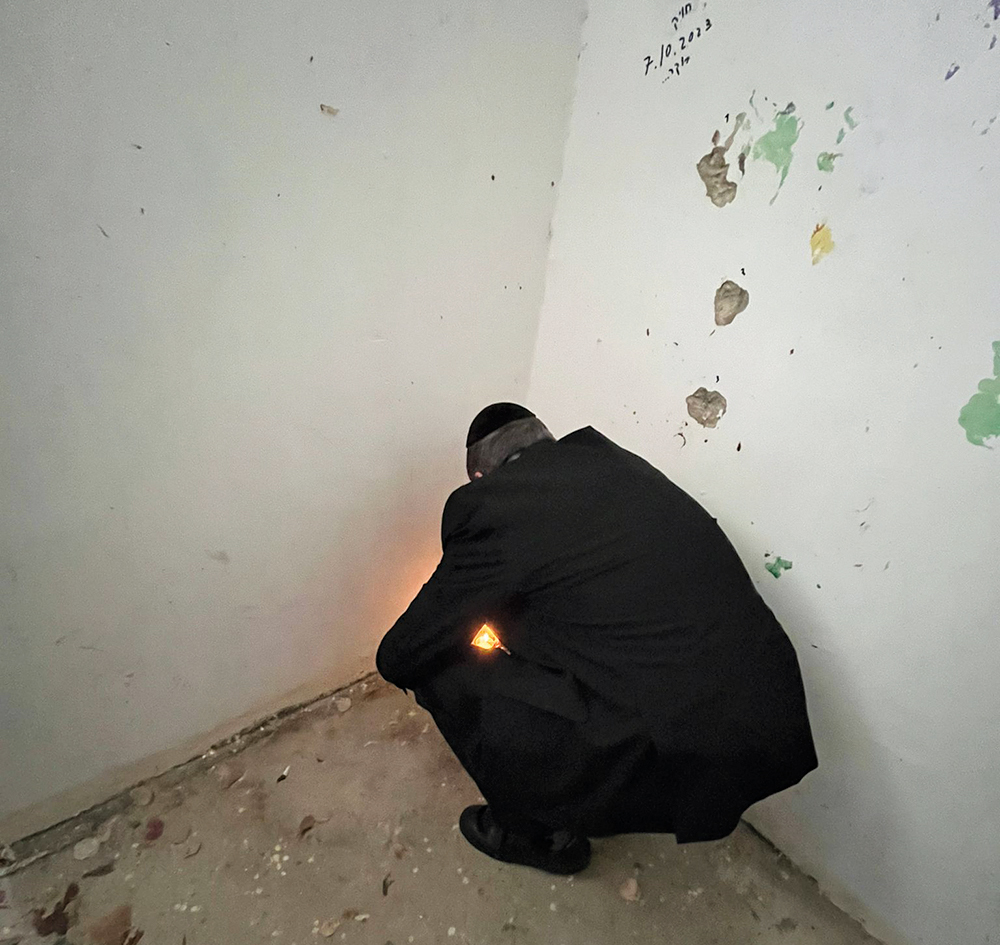
On Shabbat, January 19-20, the YINR community held a Shabbat of Reflection and Connection. Events included reflections of 40 members who returned from YINR’s mission to Israel and meeting Chairman Etai Levi of Netiv HaAsara, a moshav adjacent to Gaza. Joining the Atufim project of Rav Yosef Zvi Rimon’s organization, Sulamot, YINR has partnered in Netiv HaAsara rebuilding efforts.
On Shabbat, photo boards of Netiv HaAsara 20 murdered residents and mission-members’ personal shots were displayed in the shul lobby. Levi spoke after Musaf and joined onegs, meals and kiddush.

Levi described Netiv HaAsara’s 1000+ residents in 300+ families, including 321 under 18. “We are a community that knows everyone, who celebrates all the holidays together. If it’s a difficult time for someone, we try to help them. It is very similar to what I hear of the community of New Rochelle.” Levi noted, “When you have just one Synagogue, in this huge community is telling something.”
Currently, 350 Netiv HaAsara members have relocated to a Tel Aviv hotel or nearby apartments, 23 families relocated to Gan Yavne and another 50 families will move to Ashkelon. Assessing their readiness to move back, Levi stated, “40% want to return immediately, only 2% say they won’t, and the remaining 58% say they want to return in one to five years. In the end, we expect 98% to return.”
When mission participants visited the Moshav, Levi recapped the events of October 7, including details of the attack, the slaughtered, the survivors, and even the terrorists. Levi described three paragliders landing inside Netiv HaAsara, loaded with many forms of firepower. Simultaneously, seven men came on foot from the just-breached Erez Crossing. Participants saw the places they landed, locations of firefights and places local heroes were killed. Five terrorists escaped back to Gaza, one was killed, while Levi’s team captured but didn’t kill the four remaining terrorists. As Levi explained, we are former IDF soldiers, not barbarians. Levi stated, “Twenty people were killed. The remaining 1000 people of Netiv HaAsara have large tears in their souls that will never heal.”
YINR Rabbi Reuven Fink lit a yahrzeit candle in the bomb shelter where 78-year-old Havik Segal was riddled with nine bullets, and where bloody holes in the concrete remain. Visitors traversed an abandoned community, seeing homes with sukkahs still standing. At one home, where family-members locked themselves in their shelter, terrorists spent ten minutes trying unsuccessfully to breach the security door before moving on. Walking through a glass-strewn hallway, they viewed the destroyed living room’s scars and powder burns from explosives.
At the home of an artistic couple who locked themselves in a shelter, the terrorists blew up the entire home, including the couple. Among remnants of artwork in their yard, only the burnt shelter remains. Rabbi Fink recited Kel-Maaleh (memorial prayer) in their honor, as the group stood adjacent to their burnt-out cars. At the moshav’s edge, they saw Gaza 1000 feet away, and the closed Erez crossing, within earshot of machine-guns, mortar fire and occasional explosions.

On the last day of YINR’s mission, they met many moshav members at Tel Aviv’s Royal Beach Hotel, 40% of evacuees are housed there. Most were flabbergasted that New Yorkers heard of their town and that this group visited their moshav.
Founded in 1982 by 66 families evacuated from Sinai after the Camp David Accords, Netiv HaAsara became the closest community to Gaza after Israel left Gaza in 2005. Since 2005, Levi described, “my family has gone through eight wars with Gaza and continuous rocket attacks.”
Levi detailed plans to rebuild the community and is currently supporting its members’ mental health, educational and physical needs. Levi clarified there’s a government entity to bring people back to southern Israel, but “the government is very slow and never gives 100% of what you need.” Levi explained that the government pays apartment and hotel rents, and educational costs. “We need to rebuild the moshav, but there are things we need to do differently to rebuild a safer and stronger community.” The moshav will have to assess their plans and what can be accomplished with government funding and what funds they need to raise on their own. Levi has hopes for the future but expressed there must be clear plans for Gaza.

Levi reflected, “When we met your community in the moshav for the first time, something was different.” Levi continued, “This relationship is very important for us. We want to build a relationship together, not just for now, because something happened three months ago. We want a relationship between our communities forever.”
To partner with YINR helping rebuild Netiv HaAsara, visit the Donate/Pay page at WWW.YINR.ORG and select Reconstruction of Netiv HaAsara, or send a check made out to Young Israel of New Rochelle with Netiv HaAsara in the memo.











